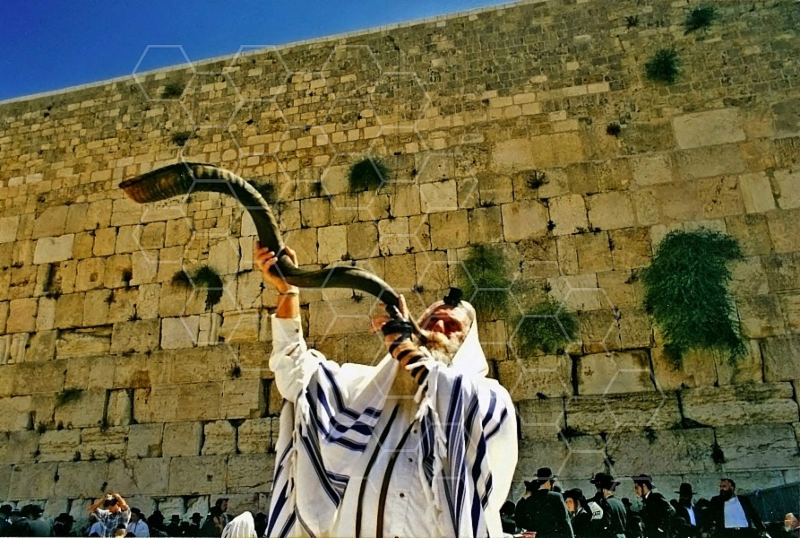|
This article was constructed with the help of either writings, lectures or shiurim of Rabbi’s Yissachar frand, Asher Hurzberg, Yossi Bilus
|
 It’s in our character to search for an advantage in life; perhaps it is in our genes; perhaps it’s because of how we were raised. Making the optimal choice is thought of wherever we go and whatever we do, because we want the best for ourselves and our children. Our people like to ask a lot of questions to give us an edge in the world. We tend to make fun of ourselves; we tend to put our culture down; “I don’t want to move there, too many Jews”; “we are all Jewish mama’s boys.” These are all famous Jewish put down jokes delivered by none other than Jews, themselves. However, deep down, we know that our people are blessed. In every criterion in life, if we put our mind to it we’re number one. We Jews are a highly competitive nation that has achieved leaps and bounds in every aspect of life. That frame of mind is ever so important in this most crucial time of the year, when we are judged for our past deeds and potential future. Squeezing the most from our prayers and behavior during the Yamim noraim-days of awe, so G-d may place us in the book of life, is our primary goal. It’s in our character to search for an advantage in life; perhaps it is in our genes; perhaps it’s because of how we were raised. Making the optimal choice is thought of wherever we go and whatever we do, because we want the best for ourselves and our children. Our people like to ask a lot of questions to give us an edge in the world. We tend to make fun of ourselves; we tend to put our culture down; “I don’t want to move there, too many Jews”; “we are all Jewish mama’s boys.” These are all famous Jewish put down jokes delivered by none other than Jews, themselves. However, deep down, we know that our people are blessed. In every criterion in life, if we put our mind to it we’re number one. We Jews are a highly competitive nation that has achieved leaps and bounds in every aspect of life. That frame of mind is ever so important in this most crucial time of the year, when we are judged for our past deeds and potential future. Squeezing the most from our prayers and behavior during the Yamim noraim-days of awe, so G-d may place us in the book of life, is our primary goal. The sages ask: what is the best way to approach G-d to receive a sweet, good verdict for the upcoming year? The sages, in their scrutinizing manner, asked a very powerful and obvious question. I’m sure the reader thought of it as well. Why does Rosh Hashanah [the Day of Judgment] comes before Yom Kippur [the Day of Atonement]? Logically, it would seem to make more sense – and certainly be to our advantage – for the day of mercy, when we are forgiven for our sins to precede the day in which we are judged for those sins. If we are to get the edge on a favorable decree, that is how it ought to be.
Once again, I found incredible, uplifting words of wisdom from Rabbi Yissachar Frand, quoting Rav Shimon Schwab (1908-1995). To appreciate his answer, we must first analyze the second chapter of Yehoshua (which we read as the Haftorah for Parshat Shlach).
After spending forty years in the desert and after our great leader Moshe passed on, we were led by Yehoshua, Moshe’s right hand man, who would lead us into the Promised Land.
 As the first order in achieving this goal, Yehoshua sent out spies to reconnoiter the land. Jericho was the first city to be in invaded in the land of Canaan. Yehoshua’s intention was to find out the mood and pulse of the enemy. For this reason, the spies had to travel through an interesting place, to say the least, Rachav’s house. Since travelers from all parts of the land passed through her inn, she was continually aware of the country’s mood. Why was her inn so popular? Well, it wasn’t her inn that was popular; it was she.
There are commentaries who identify Rachav as an innkeeper, basing the word Zonah on the word Mazon (food). However, as the Gemarah implies, the simple reading of the pasukim [verses] is that Rachav was a woman of ill repute – the normal meaning of the word Zonah comes from the word Zenut – (sexual immorality). Interestingly and astonishingly, our assurance and security in entering the holy land of Israel, was on the merit and expertise of a prostitute!
 The Gemarah (Megila 14, zevachim 117) says Rachav was one of four of the most beautiful women who ever lived. She was so beautiful she could make an impotent man able to function. She had a uniqueness as to how to make a man perform and she did it through her intelligence, by which she was able to transform herself and act like whomever her client imagined her to be. She was a psychologist par excellence. With those tools, no man could resist her advances. Rachav was a prostitute and the best in the business. In fact, the word Rachav means “to spread,” meaning she would say yes to everybody weather king or commoner. She would sleep with any guest that would travel to her inn.
 Rachav provided the spies with the information that they wanted to hear. “I know that G-d has given you the Land, and that your terror has fallen upon us, and that all the inhabitants of the Land have melted because of you…” Because of her profession she knew the minds and thoughts of the people, for there was not a prince or ruler in the area, who did not come by and use her services. She had served as a harlot since she was ten years old. This was her profession throughout the forty years when the Jews were wandering in the wilderness. Therefore, her report that the whole country was in mortal fear was measured with the highest importance, by the Jewish leaders.
At that point of time, at the age of fifty, Rachav repented and actually converted to Judaism. She confessed to G-d that during her years of sin, she made use of three devices to secretly bring customers into and out of her residence: The rope, the window, and the wall. Therefore, she now used these same three items to help the spies escape from her dwelling and from being noticed by the Canaanites, thereby saving their lives. She asked that she be forgiven for her inappropriate use of these devices by virtue of the fact that she now risked her life and used them for a praiseworthy reason. Such is the simple reading of the Gemara in Zevachim.
Rabbi Schwab is not satisfied with this interpretation and asks what is meant by her using the rope, window and wall for people to sin? She ran a house of ill repute for forty years. Everyone must have known exactly what was going on in that house. There was no reason to have a secret entrance by way of the window and rope. After 40 years, who were these princes and kings trying to fool? What were they trying to hide by climbing up the wall and entering through the window? Everyone knew Rachav the harlot and the nature of her business.
Rav Schwab interprets the Gemara differently. The Gemara is teaching us one of the secrets of Repentance. What finally inspired Rachav to repent? Rachav was inspired to repent through the realization that after 40 years in business, there were still people who were embarrassed to walk into her front door! There were still people who would be so ashamed that they would only enter by way of the rope, the wall, and the window. The fact was that after all these years, there were still people who had a modicum of dignity and embarrassment. They possessed some suppressed degree of sensitivity and morality, that at least prevented them from committing sin in a blatant fashion. Despite the fact that the society was immersed in immorality, there were still individuals who at least had a sense of guilt, some remnant intuition of possessing “Tzelem Elokim” [Divine Image]. Teshuvah can only begin under such circumstances.
 Teshuvah can only begin if I do not give up on myself. If I believe that I am totally worthless, then I cannot begin to think about repentance. However, when I realize that somewhere deep down inside, there is still the dignity of man, there is still something holy, then I can use that feeling and begin the trek down the road to repentance. This is what Rachav meant when she referred to the rope, the window, and the wall.
The Mishneh states “Don’t be wicked in your own eyes” [Avot 2:13]. This is why Rosh HaShanah must precede Yom Kippur. In order for a person to begin the process of Teshuvah, he must first realize that he is somebody of value. He must take note: I am a son of Israel. I have a King in Heaven. I am a servant of the King. Yes, I may not have been a very good servant, but at least I can say that I am His servant.
The realization that there is a King and that I am His servant, and therefore that I have self-worth, is a prerequisite for the process of repentance. If we would start the Ten Days of Repentance merely with confession – merely with a recitation of all the sins that we committed, we would overwhelm ourselves with our worthlessness and we would not be in a position to repent.
For this reason, one of the busiest times of the year for buying suits and expensive cloths is right before Rosh Hashana. We dress like kings and queens, princes and princesses, for we are what we wear. We feel uplifted when we wear nice cloths and eat the best foods.
That is how we notch up our human dignity; that is how we build our self-esteem.
On Rosh HaShanah, we never say the words “Al Chet” (upon the sins…) or “Ashamnu” (we are guilty). We leave the sins out of it, for the meanwhile. On this day, a person must think about who he is, his vast potential and his goal in life. From such a perspective, repentance may flow forward.
The Baal Shem Tov (1698-1760) suggested a beautiful Chassidishe insight on this past week’s portion: “If your dispersed shall be at the ends of Heaven, from there the L-rd your G-d will gather you and take you.” [Devorim 30:4] The Baal Shem Tov comments that we would have expected the pasuk [verse] to read: “If your dispersed shall be at the ends of the Earth.” However, the pasuk says “…at the ends of the Heaven”. The Baal Shem Tov teaches the same lesson that we mentioned above. The only time a person can be gathered back to G-d, is if “Heavenliness” is still present within the person. If a person feels that he still has a Heavenly attachment – despite the fact that he may have sullied himself with the pleasures of Earth, then from there, G-d can gather him back.
 It is astonishing. Here we have the most powerful woman that ever lived, having looks, brains, personality, education, class, money, power, charm, and grace. She can get any man she wants and she’s in her prime. There are not many women like her; a master in giving and receiving pleasure. However, she gives up on that life for a life of being a Jewish mama!! She felt it would be more fulfilling, playing the role of building a Jewish home and raising children with her husband. It would be more real and satisfying as a woman. Many famous prophets came out of the union of Yehoshua and Rachav, most notable, Yirmiyahu.
 Rachav was a harlot for 40 years, but she eventually married Yehoshua bin Nun, the greatest man of his generation. It all began with her contemplation of the wall, the rope, and the window and her recognition that man – for all of his shortcomings – still possesses holiness. That must be the beginning of the path to Teshuvah.
|


 Despite all the miracles of the ten plaques that G-d performed for his chosen people at the expense of the Egyptians, Pharaoh was not entirely convinced of G-d’s power. G-d therefore made the Jewish people seem entangled in the desert. The plan of deception was to bring them to a spot between Migdol Eisam and the sea, where Pharaoh would be certain they had nowhere to flee. The desert cut them off. They could not travel there because of the wild animals. Before them stood the impassible sea. Migdal Eisam was a high place from which it was easy to wage an attack. Thus the Children of Israel entered a strait with no exit.
Despite all the miracles of the ten plaques that G-d performed for his chosen people at the expense of the Egyptians, Pharaoh was not entirely convinced of G-d’s power. G-d therefore made the Jewish people seem entangled in the desert. The plan of deception was to bring them to a spot between Migdol Eisam and the sea, where Pharaoh would be certain they had nowhere to flee. The desert cut them off. They could not travel there because of the wild animals. Before them stood the impassible sea. Migdal Eisam was a high place from which it was easy to wage an attack. Thus the Children of Israel entered a strait with no exit.
 The Abarbanel, a famous Jewish commentary and at one point Finance Minister of Spain in the 15th century, presents a beautiful explanation of G-d’s enticement of the Egyptians into the sea. He says G-d intention was to frighten the other nations whose lands the Jewish people were going to conquer. He knew that the people leaving Egypt were at a low point, powerless to conquer large fortified cities.
The Abarbanel, a famous Jewish commentary and at one point Finance Minister of Spain in the 15th century, presents a beautiful explanation of G-d’s enticement of the Egyptians into the sea. He says G-d intention was to frighten the other nations whose lands the Jewish people were going to conquer. He knew that the people leaving Egypt were at a low point, powerless to conquer large fortified cities.
 It seems like Pharaoh did not get the message from the plaques. The message that G-d runs the show had to come full circle by splitting the sea. With that action G-d was able to pay back measure for measure for the killing of the Jewish babies as well as set the tone for the future. We see how important the concept of the homeland is. G-d split the sea for an easy landing for our ancestors in the promised land.
It seems like Pharaoh did not get the message from the plaques. The message that G-d runs the show had to come full circle by splitting the sea. With that action G-d was able to pay back measure for measure for the killing of the Jewish babies as well as set the tone for the future. We see how important the concept of the homeland is. G-d split the sea for an easy landing for our ancestors in the promised land.
